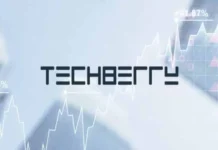Decentralized finance (DeFi) is a perfect combination of blockchain and traditional banking services. They are also often referred to as open finance.
Think about what kind of decentralized finance development services are available right now: current and savings accounts, insurance, asset trading, loans, and more. DeFi’s main goal is to create transparent and publicly accessible alternatives to these services.
To achieve this, decentralized finance uses decentralized applications (DApps). To understand how DeFi works, we need to understand how DApps work.
What are DApps? In simple terms, they are programs that run on decentralized networks. These networks can include blockchain, distributed ledger technologies (DLT), or Tor networks. The main thing is that all of them are decentralized, that is, they are not managed by a single organization or central authority.
What makes them so good? They have the advantage of smart contracts. Smart contracts are pre-programmed contracts that come into effect automatically, without human intervention. With these self-executing and self-sufficient contracts, a variety of tasks can be performed, including making payments.
Due to the growing popularity of decentralized finance, there is a growing number of DApps that help users and companies save time and money.
Key Features
- As this industry continues to evolve, it is very important to have an understanding of the basic components of decentralized applications.
- First, DApps are always open source. This means that their source code is available to the general public and anyone can test their features, functionality, and security. In other words, you can create DApps and use them without fear for your security because you see all the code and can always detect malicious elements. Also, because of the community interaction, using such applications is more secure compared to private code.
- Open source is related to another feature of DeFi: transparency. All transactions in the blockchain are publicly accessible. All users can see the transactions, but the accounts themselves are pseudonymous and contain only a numeric address. This ensures the anonymity of participants, but at the same time preserves transaction transparency.
- Since anyone can use DeFi, this new kind of finance is generating a lot of interest around the world. All you need is a smartphone with Internet access. This hallmark of decentralized finance allows you to provide access to financial services to those who truly need them. In addition, the DeFi industry operates without controllers: you do not need to get any permission to use decentralized finance.
- Developers are also very interested in DeFi because of their compatibility, i.e. the system’s ability to interact and share information effectively. As new entrants come in, previous developments are retained. This allows new developers to leverage the stacks for DApps and strengthen their position in this new sector of the economy.
- Thanks to open source, developers can take a flexible approach when working in a decentralized environment. Many different options are available to them, including the integration of third-party applications. If you are not satisfied with the existing options, you can always create your own interface.
Application of DeFi
First of all, loans and credit should be mentioned. In this respect, decentralized finance has a clear advantage due to its openness. They allow fast transactions and digital assets, and eliminate the need for credit checks. Decentralized finance operates on a minimal level of trust without compromising transaction security. This makes the lending process faster, cheaper and more accessible.
DeFi-applications, as their name implies, are financial in nature, so obviously they can be used for banking transactions. And thanks to the use of smart contracts, such transactions are cheaper and easier than in conventional banks. This applies to aspects such as insurance and payment intermediation.
Now Aleph1 will talk about using DeFi on decentralized exchanges (DEX). On such platforms you can trade cryptocurrency without intermediaries, making transactions directly with other users through smart contracts.
Decentralized banking and traditional banking
While traditional banking services are time-tested, they are not without flaws that DeFi can fix.
In traditional banking, access to financial services depends on where you live. For some, it’s not easy to access, and for some, it’s not even possible. But DeFi can solve this problem. They have many followers all over the world, and anyone can access them.
No matter where you live, you always have access to decentralized services and networks. As we said before, you also don’t have to deal with controllers and get permission to use these finances.
In addition to limited access to financial services, the traditional banking system has cumbersome procedures and high fees. Because DeFi is not tied to any central authority, transactions are much more efficient, in particular through the use of smart contracts without human intervention. From the start, all terms are written in code, and the contracts are self-executing.
In a traditional banking system, all user names are directly linked to their accounts. Although DeFi DApps are completely transparent, the accounts are pseudonymous and your privacy is not threatened. Because of this transparency, every user can see all transactions, which is not possible in most conventional financial systems.
The value of DeFi
Now that you’re familiar with the benefits of DeFi, it’s clearer to you where traditional finance has failed. Because there are no middlemen involved with decentralized applications, users are always in full control of their funds. This also reduces the cost of the system and eliminates individual flaws.
Ultimately, it all comes down to participation. When we talk about those who don’t have access to banking services, we’re not just talking about people in deserts or abandoned villages. That may not be the case at all.
Prospects for decentralized finance
With all of the above in mind, it can be stated that the concept of decentralized banking has the potential to revolutionize the financial industry. As our traditional systems gradually move towards decentralization, there is a possibility that DApps will soon become more popular. Moreover, they may even set new economic standards.
Cryptocurrencies have helped us move our money into the digital space, and DeFi goes further, and that’s just the beginning. We are on the cusp of democratizing financial services. We see a new industry being created, and we are very interested in watching it emerge.
Read Also : Defi And Curve: An Invincible Duo Worth Your Time, Effort, And Definitely Your Asset



































































